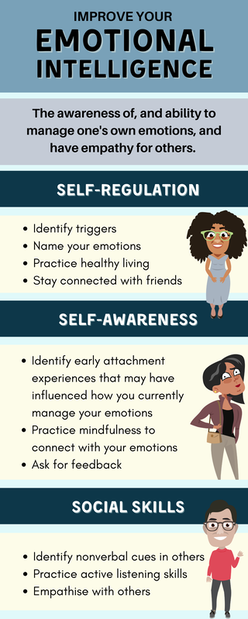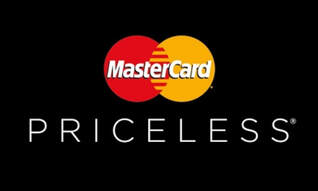|
What do organizations like Microsoft, Facebook, Virgin, HSBC, and even the UK’s GCHQ have in common? They have all, very recently, begun actively seeking out neurodiverse candidates.
Why, you ask? Because we now have increasingly more evidence that dyslexia is a ‘different’ way of thinking, not a lesser one. If you want proof of this, you can look no further than a recent report by E&Y, titled “The Value of Dyslexia', which found that employees who experience dyslexia excelled in key areas like idea generation, problem solving, leadership, critical reasoning, and ‘three dimensional thinking’. So, what can we take from all of this? Well, we can finally say that dyslexia in the workplace is fundamentally an ‘accessibility’ issue, not an issue of talent. Studies like these suggest that, in addition to a moral duty to be inclusive, there is also a key strategic and financial imperative behind cultivating a neurodiverse workforce. There is a caveat here, however. In order for organizations to benefit from the unique skill sets of employees who also experience dyslexia, they also need to be aware of the challenges they may face, and be ready to make improvements to the work environment. Fortunately, these accommodations benefit the organization as a whole! Below we’ve listed some simple workplace changes that can help ensure employees experiencing dyslexia reach their full potential in their roles. Provide the tools The challenges individuals with dyslexia face when dealing with written language can be a major barrier in their everyday lives. What may surprise you, however, is that we are currently going through a period of exceptional progress towards eroding these barriers. There is already a wide range of dynamic software that assist individuals in overcoming key struggles around reading and writing - and the market for this is set to grow even bigger! Perhaps the most well-known is Grammarly, which is an app which proofreads your writing for grammar issues, as well as provides insightful recommendations around the quality and flow of your written language. The great thing about Grammarly is that it can be used as its own stand-alone word processing app, or can act as a useful plug-in when using software such as Gmail and outlook. This means it can fit neatly into almost any established work environment whether on-site or remote. On the note-taking side of things, meeting recording software, such as Otter.Ai, is also becoming more popular. Rather than face the pressure of both taking notes and contributing to a meeting, note taking software allows neurodiverse employees to focus on engaging with clients and colleagues without fear of missing key information. And finally, text-to-speech software, such as Speechify, can provide a huge quality of life solution for employees with dyslexia, especially when digesting large amounts of information in a short period of time. Where possible, it's highly recommended that employers use digital versions of documents so dyslexic workers can choose to use text-to-speech software, if they so wish. Ultimately, more important than the tech itself, is the responsibility employers have in providing these tools for their staff. As an employer, you should be keeping up to date on new software that could prove beneficial to your workforce, as well as setting aside budget to implement them. Encourage communication In order to fully understand the challenges dyslexic employees face in the workplace, it is paramount that employers actively cultivate an environment of open-communication. There is still a whole host of unwarranted stigma around neurodivergence. Despite all the best intentions from employers, many employees could be holding themselves back in asking for extra assistance or special considerations. Avoiding this once again requires proactivity. Let your employees know that your organization accepts and encourages neurodivergence, and if an employee has shared that they have dyslexia, don’t be afraid to use 1-to-1 meetings to gauge whether they need any extra assistance, as well as discuss any potential solutions. Ensure your entire organization is onboard Building an inclusive workplace is a company wide endeavor. While providing tools and assistance to employees experiencing dyslexia is an excellent first step, feelings of stress and alienation from co-workers can severely dampen any efforts made towards inclusivity. Consequently, we strongly recommend businesses research and invest in company-wide neurodiversity awareness training. By being aware of the challenges their colleagues face, team members will be more capable of effectively working together towards common goals. Be committed Despite all the progress being made in tackling issues surrounding neurodivergence, it is important to keep in mind that nothing changes overnight. With all the tools at an employer's disposal, it’s very easy to fall into the trap of believing in quick fixes. Like everything else, inclusivity and accessibility are ongoing issues that require persistence and dedication - especially during times of significant change. Before actioning anything mentioned above, make sure you have a genuine plan of action, and that you are ready listen to your employees as you work towards solutions together. If you don’t know where to start, we have nested our introduction to neurodiversity within our self-directed course on Diversity and Inclusion. It covers important points regarding neurodiversity and how it plays out in the workplace. We find that departing from a place of compassion and having the willingness to learn is an essential step in making workplaces welcoming for all. Here are the top 10 things employers can do:
0 Comments
We are often told, particularly within the western world, that success is a mindset, and within this mindset, comes a specific set of values and patterns of behavior. Winners, we are told, are ruthless. They are strong, competitive, self-centered, and machiavellian. They have their own goals and their own ideals, and will stop at nothing to achieve their needs. Winners, we are told, are like sharks. As for the losers; they're more like their prey.
While there is arguably a nugget of truth buried within this way of thinking, there is also a whole lot wrong with this attitude. While attributes like self-assurance, tenacity, and resilience are key to finding success in today's ultra-competitive environment, this doesn't mean you need to be a shark, and it certainly doesn't mean you should be treating others as prey. To the contrary, sensitivity, emotional intelligence, and vulnerability are not weaknesses. In actuality, they are key skills that allow us all to navigate our increasingly complex social environment. As such, If you want to succeed in anything, especially business, you should be embracing emotional intelligence, and taking pride in your ability to tune into others needs. Don't believe me? Well, here are four ways in which emotional intelligence can help you succeed in the business world. 1. Self-Awareness: As an emotionally intelligent person, you are more aware of yourself, and what makes you tick. You’re more aware of your strengths, your weaknesses and your goals. More important than this, however, you’re more aware of why you behave the way you do. While this may not seem obvious in a world that seems to celebrate big and often ‘brash’ personalities, a heightened sense of self-reflection is indeed paramount to success. Think of this skill a bit like a coach for a major sports team. A team could have all the star players they want, but if they keep getting injured and underperforming without any feedback as to ‘why’ , said sports team will be doomed to run head first into the same old mistakes. Likewise, in business, you need to be able to diagnose your own shortcomings, and identify areas in which you need to improve. Naturally, this isn't about ‘beating yourself up’. Instead, this is about understanding the true value of ‘humility’, and being ready to learn and develop at every opportunity. 2. Social Skills: In addition to self-awareness, EQ also gives you a vital boost in understanding those around you. Again, in business, this is hugely important. Regardless of sector, no individual ever truly operates alone. As a businessperson, you’re constantly interacting with other people, be this your colleagues, your employees, or your clients. Suffice to say, within this environment, social skills and effective communication are essential. In order to obtain these skills, however, you need to be sensitive. You need to be capable of understanding other people’s motivations, their anxieties, their goals, and ultimately, their emotions. This is especially the case if you want to build long lasting and effective relationships. 3. Empathic creativity: Empathy isn't just a social skill, but a creative one as well. In business, what defines a great idea ultimately comes down to how it will be received by your target audience. Whether you work in marketing, product design or HR, your ‘performance’ hinges on your ability to cultivate an actionable understanding of your customers' needs. Within this paradigm, great ideas are ones that reach their audiences in an authentic, impactful, and fundamentally considerate way. This is to say they are informed by a deep understanding of what their target audience truly wants. Achieving this is no easy task. However, by being emotionally intelligent, and by possessing a genuine respect for your target audience, you are a massive step closer to fulfilling people's needs on a much deeper level. 4. Emotional intelligent leadership: Last but not least, emotional intelligence is crucial to great leadership. At an increasingly rapid rate, we are seeing the old guard of so-called ‘alpha males’ and ‘strong men' fall out of favor for more sympathetic and considerate leadership styles. Why? Because no one wants to work under a shark, and if they can help it, they'll go somewhere where they feel more valued, and where they know their voice will be heard. On the inverse of this, emotionally intelligent leaders are now being celebrated and sought after, especially as businesses look to diversify both their workplace and their audience. Ultimately, emotionally intelligent leaders are now breaking ground because they combine all of the skills we’ve talked about so far. They’re self-aware, and are ready to accept feedback. They’re pro-social, and instinctively know how to motivate their staff. Finally, they’re empathic creatives, and can use their heightened sensitivity to solve problems and generate new ideas. Try getting a shark to do that! A final note on emotional intelligence So those were our four key areas in which EQ (emotional intelligence) can help you excel in the workplace. As a final note on this topic, however, it’s also important to highlight that emotional intelligence is as much a skill, as it is an attribute. Like all things, some people will find being sensitive to the needs of others easy, while many will struggle, despite all their best intentions. If you are facing these challenges, do not give up! No one expects you to excel at this from the offset, especially in a world where many of us still experience stigma around emotional availability and empathy. EQ is a skill that develops over time. As long as you appreciate its value, and work towards improving yourself in this area, you will see progress and results. If you’re interested in learning more about this, we recommend taking a look at the book The Hidden Agenda, where I delve deeper into the power of emotional intelligence, and how it can be applied to the art of pitching, networking, creativity and more. Are You Dealing With A Bully At Work? Bullying is one of the most common issues everywhere including in workplaces. Many employees face the issue of bullying at work. Bullies are found in all walks of life but one of their favorite grounds is the workplace. Being bullied at work can be very frustrating and this feeling can lead to stress, low self-esteem, and even health problems. Luckily, there are many ways to deal with bullies at work that you can use to minimize the effects of bullying in your life and do not have to deal with the problem for years! Here are five tips that will help you prevent being bullied at work! Step 1: Understand That You Are Not The ProblemMany bullied workers feel like there is something about them that causes others to treat them poorly. This feeling can make employees stop wanting to go into work, or keep their head down and avoid interactions with other coworkers—but none of these approaches actually address what’s going on. Don’t fall into a victim mentality; if you understand that bullying isn’t your fault, it makes dealing with it easier. There are many reasons why bullies are involved in bullying someone at work. They might be envious of your recent performance. Jealousy might be the issue as they may be envious of you as an individual. A bully might simply be prejudiced and have something against you. Step Two. Take Care Of YourselfOne of the most powerful weapons you have against bullying is self-care. As long as you are caring for yourself, you won’t be an easy target for a bully. Building your own self-esteem will give you more confidence and strength in your life, allowing you to stand up for yourself even when no one else is around. You’ll have more love and care inside of yourself than any negative situation can take away from you. So set aside some time to engage in activities that you love. Also, make sure to take breaks and don't be afraid to take breaks, invest your time in fun activities to relax. Always remember the positive contributions that you have made to the organization. Step Three: Do Your ResearchOne of the most important things you can do when dealing with a bully is educate yourself. The more you know about your bully, his/her past and their tactics, the better you’ll be able to protect yourself and those around you. If your workplace is experiencing an issue, look into training sessions regarding workplace bullying. There are many online resources available that provide insight on how to deal with bullies as well. It is a must to do some research before planning a step. Inquire about the workplace rules because all organizations have a specific policy for dealing with issues like workplace bullying. Step Four: Speak To The Right PersonWhether you’re being bullied by your boss or a co-worker, it’s important that you speak up. The best way is to approach your HR representative and share your experience. They will look into it from there and do what they can in order to resolve it. Do not take matters into your own hands because bullying is never acceptable no matter what, especially in a workplace environment. Step Five: Seek actionIf you’re being bullied at work, don’t be a passive participant. Identify who your boss is and make sure they know that you’re being targeted by other staff members, let them know how it is negatively affecting your performance and ask for their help. They may not be aware of what’s going on or why—if that’s so, put together a case and present it to your boss in writing. Another way to deal it this situation could be to look for another job. The act of looking for another job will give you the confidence to handle the situation positively. It will bring hope to your life that everything will be better. The cost of bullying in the workplace could be a loss of your job as well. Looking for a new job will make it possible for you to bear the bullying in the meantime. How EMOTIFIED Can Help You?EMOTIFIED trains employees on how to deal with bullying, change their mindset and enhance communication skills. By training employees on how to approach these issues in a positive manner, they can make bullying disappear from their workplace. With the right tools and methods available through EMOTIFIED, even a group of bullies can be transformed into productive workers. The psychological boot camp by EMOTIFIED will help you to tackle bullying at the workplace. This course is beneficial for all those who are bullied at work. The team at EMOTIFIED will help you to develop self-awareness within yourself. You will also be able to develop psychological safety for yourself. Final Note,Bullying at your workplace can make you uncomfortable. It can also stop you from giving your best at your workplace. If bullying is hurting your mental health, then you must take action against it. Author- Kevin Allen - Chairman of Emotified Who's the real enemy You might have come across a situation where you constantly feel that you do not deserve your success or your well-established career, and fate has been somehow kind to you and that your current success has been solely dependent on being “lucky”. You may be walking through life being weighed down by the fear of being found out by others at the workplace as a “phony”, leaving you anxious at all times. However… You aren't not aloneInitially, this phenomenon, coined by high-achieving women, has now seemed to be affecting all people irrespective of their age, color, gender, or profession. As it stands, people from all walks of life suffer from Imposter Syndrome at work. From top CEOs to salespeople, academics, athletes, or artists, all have felt like you at some point in their lives. In fact, a survey result in the UK indicated that around 80% of professionals suffered from some aspect of the syndrome. Symptoms:
How to overcome it?The good news is that this affliction is indeed beatable. Speaking from my own personal experience, I can assure you that Imposter Syndrome can be cured and below you will find your guide to overcoming this all too common phenomenon. So let’s start with tip #1: 1. Self-affirmation:As it stands, a person suffering from Imposter Syndrome is their own worst critic and their own worst enemy, leading to self-doubts, low self-esteem, and low confidence. Self-awareness, improvement, and holding yourself accountable are essential traits as, without these, one would struggle to identify one's weaknesses and areas they need improvement. The features mentioned above also include knowing what you are doing right and what you personally excel at. This not only encourages you, but grants you the unique ability to boost your confidence in excelling in areas that you are quite gifted in. If it were otherwise, the world would not have been in the position where it stands today. Instead, it would be full of people too scared to face challenges or pursue their dreams and realize their ideas. Practicing self-affirmation: For those suffering with Imposter Syndrome it can be quite difficult to identify and take ownership of that which you do exceedingly well. So, I task you to ask 5 of your colleagues to write ten words they associate with you and explain why they chose them to describe you. The results will amaze you, help raise your self-esteem, and know your own worth. 2. Define what success is to youImposter Syndrome typically leads to having unrealistic expectations. Hence, overworking to achieve challenging goals they set for themselves (and failing) and the aftermath may lead you to constantly compare yourself to others. However, it would be in your own best interest to remember that every person is unique, with capabilities and conditions different from others. Comparing yourself with others can be detrimental to not only your mental health, but physical wellbeing as well. Practice setting your own realistic goals without the need for any external approval, and don’t be afraid to list the smallest to grandest achievable goals. Achieving your little goals will be your success (that only matters to you) and with each accomplished goal, feel free to take a moment to celebrate yourself for the amazing and successful person you are. 3. We work to live, We don't live to workUnfortunately, people suffering from the syndrome put much stress on themselves to achieve their self-created challenging milestones. Contrary to your own belief, it is crucial to remember that no success in the world equates to one's happy mind and healthy body. ‘Plenty of people miss their share of happiness, not because they never found it, but because they didn't stop to enjoy it.’ So, stop and sink deep into the little things of life that bring happiness. Final Note,I do hope that this quick little guide not only helped you, but assured you that you are not alone in your own feelings of self doubt. But remember that success and self transformation takes time and don’t be too quick to assume that your feelings of doubt will just subside overnight. These things may take time, but always remember that you are worth it! One great way to assist you in your journey to Self-love would be to take our EQ Test to help with this process of eradicating Imposter Syndrome and other Emotional Intelligent techniques that we offer here at emotified. We are here to help so feel free to fill out our contact form. Author: Kevin Allen - Chairman of Emotified
 The awareness of, and ability to manage one's own emotions, and have empathy for others. Self-Regulation
As a growth officer in my early career with the mad men and women of McCann Erickson, my mom could never quite grasp what I did for a living. But, when we pitched, won and delivered the phenomenon now globally known as Priceless for MasterCard, she could finally brag to her friends at my Aunt Rose’s kitchen table. From the moment the very first television commercial appeared (You remember it, right? “Two tickets: $28. Two hot dogs, two popcorns, two sodas: $18. One autographed baseball: $45. Real conversation with 11-year-old son: Priceless.”), Mom told practically anyone who would listen that I wrote and executed the entire campaign single-handedly. My role, in fact (promise not to tell her) was that of the Pitchman.
In one of the industry’s most hotly-contested advertising accounts, dozens of agencies’ pitches were winnowed down to two contenders. In a surprising twist, MasterCard declared that the agency with the highest score in consumer testing would win. The heart-wrenching result: Our Priceless campaign did not test well. In an act of courage, and confidence, the MasterCard team awarded us the business anyway. When I asked Larry Flanagan, who went on to become MasterCard’s celebrated CMO, about their decision to award us the business for the Priceless campaign, he said, “We bonded because McCann Erikson understood the deep desire of the MasterCard customer, but they understood MasterCard’s deep desire, too.” We all make pitches every day — for that highly-prized account; to a client who’s reluctant to accept your scary proposal; for a skeptical CFO to loosen the purse strings; or for a wary new team to believe in you. Here’s what I’ve learned about winning pitches like these: 1. You need to understand that behind every decision lies a hidden agenda. There are no magic tricks or hypnotics to persuade people to do what you say. Rather, behind every decision the average person makes to buy something — whether a product or service, your argument or an idea — is an unspoken emotional motivation. I call this the hidden agenda. Tap this, connect to it — and you will have people saying yes. 2. You need to do your emotional homework to find the hidden agenda. To find the hidden agenda, you need to identify your audiences’ wants, needs and/or values. Too many pitches are lost because the people undertaking them think — erroneously — that the business matters at hand are the only relevant issue. Deep desires, often unspoken — like the desire to be recognized, to feel appreciated, to create something, to be admired, to lead, to feel safe and secure — are fundamental to any business decision. The business issue and the hidden agenda are intertwined. For the MasterCard pitch, in fact, two parallel hidden agendas were at work — MasterCard’s agenda, and the agenda of MasterCard customers. MasterCard’s hidden agenda was a desire to finally score a victory over Visa, but there was a sense that it would be very difficult to achieve. The MasterCard customer’s hidden agenda: to be good people, buying good things, for good reasons. A hidden agenda falls into one of three categories: Wants are about people viewing their circumstances through the lens of ambition and confidence. For example, when pitching to a Wall Street titan some years back, we determined the following want: “I want people to recognize me for having created a financial services powerhouse.” Needs are about viewing circumstances through the lens of fear or concern. The need we uncovered at the core of the MasterCard pitch was: We need to score a victory over Visa in the marketplace, and in doing so be famous for it… but we’re not so sure we can. Values are about people viewing the world entirely through the lens of their belief systems. The key insight that led to the development of the Priceless campaign was in the value system of our target audience, namely people who believed they were good people buying good things for good reason, and that it was not possible to put a price on things like family and life experiences. 3. You need to connect yourself to the hidden agenda. You win the pitch when you link what I call your leverageable assets to your audience’s hidden agenda. Your leverageable assets are: Real Ambition: This is your intention to create something good where nothing existed before. In a wonderful pitch for South African Airways, the real ambition was based on a shared aspiration for a new South Africa, where South African Airways would be a proud, visible symbol of a new, diverse nation. Your Core Abilities: These are the special abilities you possess at the core of your being that separate you from others. For those of us at McCann who were in pursuit of the MasterCard campaign, it was our fiercely competitive winners culture. As Larry Flanagan pointed out, “Yes, we honestly believed that MasterCard could win with McCann.” Your Credo: These are the values and the belief system to which you subscribe, and/or a shared behavior and code of ethics that you’re working within. A good example is when Horst Schulze from Ritz Carlton summed up their credo with the following sentiment: We’re Ladies and Gentleman Serving Ladies and Gentleman. Your Real Ambition is used to connect to the your audience’s Want, creating a shared vision of what the future will become. The South African Airways pitch was won on the basis of a shared ambition of presenting the airline as a symbol for what the entire nation could become. The pitch team summed up the sentiment in a short film — a photo essay of the mosaic of the new south Africa, with the strains of a beloved Thula Mtwana lullaby, all leading up to the tagline, “We’re South African.” Your Credo is used to connect to the client’s Values, defining a belief system that you and your client share. A pitch for Marriott International was won on the basis of a shared value system, coined, The Sprit to Serve. Your Core Ability is used to connect to the client’s Need, because you have something special that solves your client’s needs. McCann won the MasterCard campaign through a collective desire and ability to win against an entrenched competitor. Key to winning was applying the core ability of McCann — an intense and renowned competitive spirit, and a philosophy that every competitor’s vulnerability can be found. In fact, the very first sentiment of our presentation was a huge slide with the words Carpe Diem, and a powerful affirmation that MasterCard’s DNA aligned with a profound shift toward inner-directed societal values — and that this was indeed MasterCard’s moment. 4. You need to deliver like a litigator. With this foundation, you can then create your argument, gathering all your facts and supporting evidence around the hidden agenda, which should be placed squarely at the center of your “case.” Then, you can create an exciting tale where your audience attains their deepest desire, not via business-speak, but with good old-fashioned storytelling to convincingly convey your pitch. It may seem crazy for an ad man to assert that we really don’t “persuade” anybody to do anything. I believe, however, that pitches are won — and people are willing to follow you — not because you’ve twisted someone’s arm, but because people see that you understand them, that you’ve applied the time and the sensitivity to do so, and that you possess a special gift that can help them reach their heart’s desire. And that, my friends, is priceless. Cultural permission is the tone, attitude and language that emanates from the executive suite. It is a mantra, expressed in oft-used catch phrases and philosophies that move like waves through the organization. They get adopted and interpreted as actions to be followed. They become part of everyday lexicon and cultural idioms that people hear coming from the highest levels, and form a platform for what the organization believes and expects of its people. “Get it done!” “We will not be denied.” “Take no prisoners!” These are just a few of the things I heard coming up in the business world, and from my perspective, no good came from any of them.
As a former New Yorker, now a London resident, it has been nearly impossible to avoid the drama of News Corporation’s phone hacking scandal, which has shuttered a more than 100-year-old newspaper and, even as of this writing, has executives and politicians alike running for cover. It is yet another in a catalog of companies caught up in the misdeeds of their people. I was struck by the steadfast claims of executives that they had no knowledge of inappropriate acts, and certainly had not condoned any inappropriate actions. Yet, the inappropriate behavior seems to have happened not just randomly, but systemically. The real drama however, unfolded not when the leaders of the company claimed, perhaps accurately, that they were unaware of and shocked by the actions of errant employees hacking phones, manipulating markets and cooking the books. The real drama happened long before — when these leaders played a major role in setting the cultural climate for inappropriate actions to unfold. In the race to find culpability, what doesn’t get talked about is the very climate that creates the conditions for people to behave badly and feel perfectly justified in their behavior. It is, in fact, the very same thing that creates an environment and provides the fuel for people to conversely do great, generous and far-reaching things. It boils down to cultural permission. Take Enron, for example. Lurking amidst Enron’s excesses were the unmistakable cultural cues that I believe drove employee behavior. “We’re an aggressive culture”, “Guys with Spikes”, “Money is the only thing that motivates” and “Rank and Yank” are but a few of the statements heard. Is it any wonder traders thought they had the right to shut off electricity supplies and manipulate the market? The Power of the Spoken Word One of my greatest mentors said to me upon being awarded my first real management role, “Well kid, welcome to the club. You are now dinner conversation.” He let me know in no uncertain terms that what I said and how I said it would be discussed at every dinner table of every employee in the place. He taught me that I had a vital duty to be certain that the language I used and the themes I shared would result in a positive, constructive and motivating force, mindful always that what I said, however offhanded, would be seen as a directive — interpreted and acted upon. The Seeds of Greatness One thing common to the fraternity of leaders I have known is the rapid recognition of the power of the “bully pulpit.” The words you share travel like lightning and when they arrive at your people’s doorstep…they act on them. Your influence over the behavior of your people is not limited to carefully-prescribed internal communications; it lies in the daily sentiments, conversations and values you share. The best leaders understand this — like Horst Schulze of Ritz-Carlton, who shaped his employee’s decorum and conduct with “We’re ladies and gentleman serving ladies and gentlemen.” Or, Rudy Giuliani, when he was working to build a better New York, stating that “People created the problem so people can fix it,” and “What doesn’t get measured doesn’t get done.” These leaders used simple, highly motivating and prescriptive words that set the right cultural permission for their organizations. For my company, there are several phrases we use, chief among them being “Generosity of Spirit.” I believe when you set out to do something worthy for someone, it’s honorable in the first instance, and comes back to you in the second. It shapes a climate…and a bottom line. Choose Your Language Carefully Try this: Write down the various phrases and expressions you use regularly. Look them over, and ask yourself what permission you think they invoke? What behaviors do you think your employees will take on when they hear them? If they exist, write down the legacy phrases that float through the organization. Are they healthy? Do they need erasing? If you don’t have a stable of rich language, then there’s an opportunity for you to craft it, and add this language to your overall internal motivation and communications program to inspire and mobilize your people. This language, carefully articulated and shared, offers rich opportunities to codify and crystallize what your company is about, and what your company seeks. It will provide the cultural permission you wish to give. |
AuthorKevin Allen Speaker. Archives
June 2022
Categories
All
|
Emotified is a unit of E.I. Games Corp






 RSS Feed
RSS Feed
